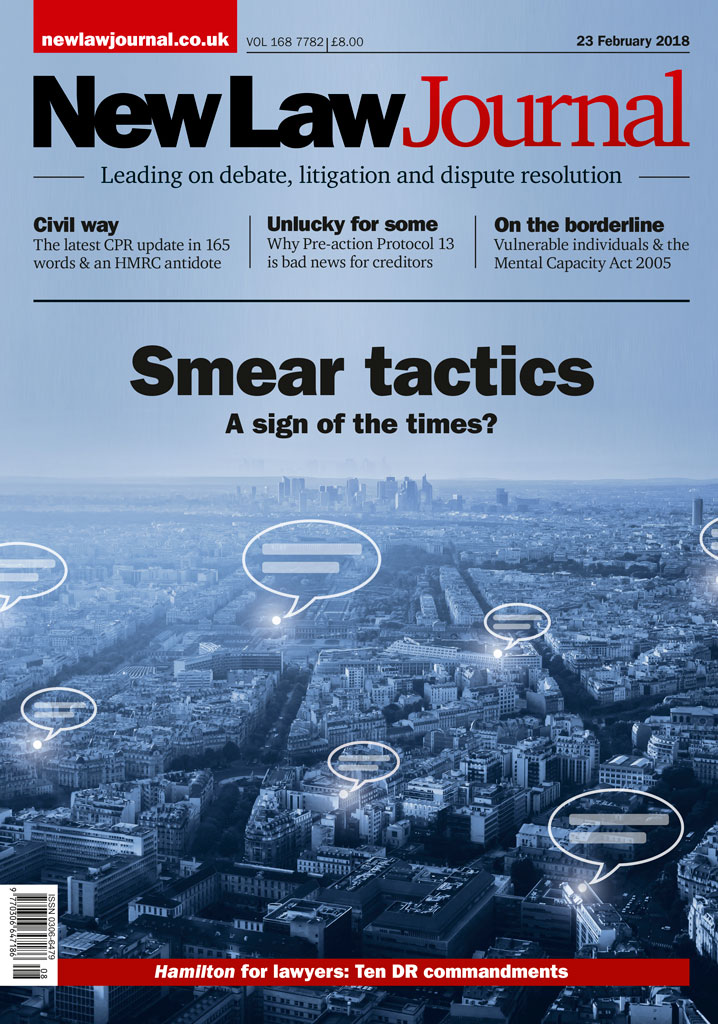
Giles Eyre & Dr Linda Monaci discuss vulnerable individuals & the Mental Capacity Act 2005
HMRC antidote; Hug a claims management co.; 94th CPR update
This week, Michael Zander considers retained EU law & modified powers
In the second of a two-part series on possession claims, Gavin Bennison considers occupation of part
David Burrows reviews the new rule in family proceedings covering evidence given by children & ‘vulnerable’ persons
Smears, complaints, abuse…it seems all’s fair in love, war & litigation, but where will it all end, asks Khawar Qureshi QC
The latest pre-action protocol for debt claims creates extra hoops for creditors to navigate, says Peter Thompson QC
MOVERS & SHAKERS

Keystone Law—Milena Szuniewicz-Wenzel & Ian Hopkinson
International arbitration team strengthened by double partner hire

Coodes Solicitors—Pam Johns, Rachel Pearce & Bradley Kaine
Firm celebrates trio holding senior regional law society and junior lawyers division roles

Michelman Robinson—Sukhi Kaler
Partner joins commercial and business litigation team in London







